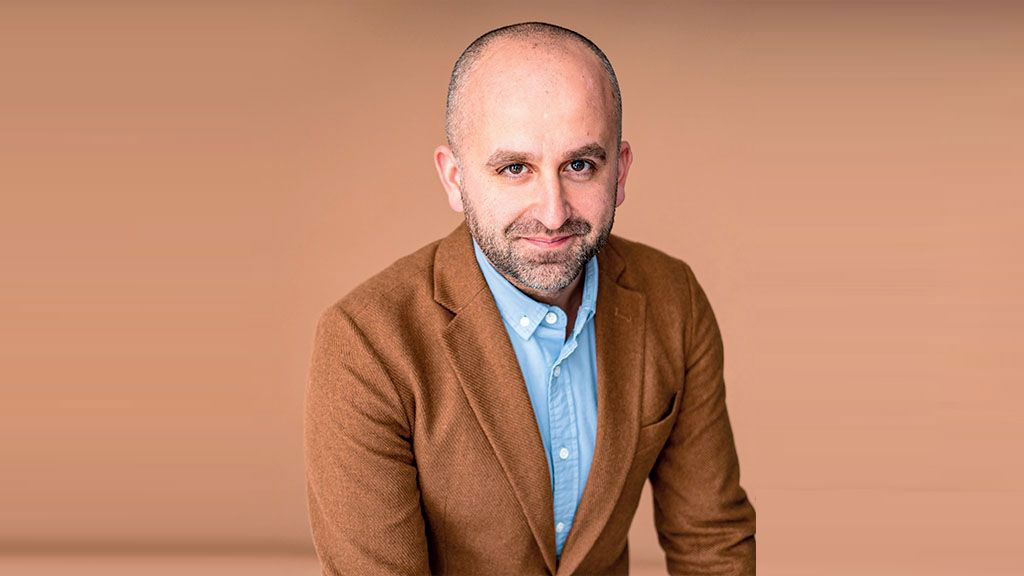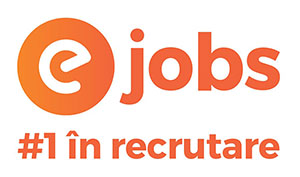Q: The global economy seems to experience challenges we have not seen in decades: very high inflation, the prospects of synchronized recession, and even war. In this context, what do you see in the labour market, especially in job searching?
Mr. BOGDAN BADEA: The labour market has become increasingly dynamic in the past year and is now vividly mirroring what we experienced in 2018, 2019 - a growing number of new jobs, in all fields of activity, and a real struggle to attract the best candidates.
8.1 million applies were registered from the beginning of the year on eJobs.ro and nearly 400.000 new jobs were posted (+20% vs the same period of 2021). Up to this point, on the local market, the threats of war and economical instability have not had an impact in the number of new jobs or in the interest of the candidates. However, we have seen salary increases and this is linked not only to the lack of the candidates on the market, but also to the very high inflation rates.
Q: What were you able to see in 2022, as a CEO of eJobs, regarding the Romanian job market before everyone else? What are the signals for 2023?
Mr. BOGDAN BADEA: At the end of 2021, we said that 20222 was going to be the best year in terms of new posted jobs. And all the data so far shows us that we were right. As far as 2023 is concerned, there are still a few more uncertainties than in 2022, regarding the economic outcomes. But companies are still going forward with their expansion plans as far as their teams and businesses are concerned.
Q: A new concept developed in 2022 (after the 2021 Great Resignation): quiet quitting. In simple terms, employees only want to meet their job descriptions without taking any extra duty. In your view, is the quiet quitting real on the Romanian market? If yes, how would you describe the employer’s role in combating quiet quitting, and how could this trend be seen on eJobs?
Mr. BOGDAN BADEA: We have undergone a survey among 1.700 employees on this subject matter and the results show that 33,7% are not feeling motivated to do more than what is required in their job description. Moreover, 60.3% are complaining that their employer has no regard towards their work-life balance. So, yes, I would say that we are witnessing a form of quiet quitting, but it is not something that employers cannot cope with if they take the right measures in due time. As someone used to say, what we now call quiet quitting, a decade ago was merely known as having a job.
Q: Can you give some pros and cons about 2022 being the best time frame ever to find a job? Why? And how do you look at 2023?
Mr. BOGDAN BADEA: As mentioned before, since the beginning of the year, we have had nearly 400k new posted jobs on eJobs.ro, 20% more than in 2021. So this is the main argument in favor of 2022 being the best time frame ever to find a job. Salaries have gone up and employers are quite flexible when it comes to attracting new talents or retaining those already in the company. Allowing remote work or a hybrid kind of work is an example from this point of view. 2023 looks rather promising as well, although we must keep a cautious eye on how the economy will grow and what impact we will have to witness if we will be dealing with a crisis.
Q: How many applications do you expect for 2022? For how many jobs? What does this mean if we put the figures into a historical perspective?
Mr. BOGDAN BADEA: We will probably close 2022 with nearly 500k jobs and more than 10M applies. In terms of new posted jobs, it will probably be the best year in our 23 years of being on the market.
Q: Can you give us some insights regarding the wage’s evolution in 2022 when so many unusual factors are met for the first time in the same place (high inflation, high demand for workers despite the recession fears, high mobility of the workers, other factors)?
Mr. BOGDAN BADEA: 2022 marked salaries growth and most employers had to do that in order to adjust the current wages to the high inflation rate. Also, due to a lack of candidates on the market, attracting the right talents meant being really competitive in terms of salary and benefits. For some key positions, we saw salaries bigger with 20%-30% than in 2021.
Q: What do companies ask for in 2022? (Can you give us a TOP5 in the job posting of eJobs?)
Mr. BOGDAN BADEA: Literally, companies are looking for candidates from all experience levels and all fields. If I were to make a ranking, I would say that the majority of jobs are addressing entry and mid level positions. And the top 5 employers are those retail, services, food&drinks, call-center / PBO and IT / Telecom.
Q: How was 2022 in terms of earnings/ business value for eJobs, and how do you explain the dynamics?
Mr. BOGDAN BADEA: It was the best year, historically, from all points of view and this is attributed not only to a strong comeback of the hiring bustle, but also to our strategy of increasing our non core activity (digital marketing campaigns, our Skilld division - the recruitment service that uses artificial intelligence, developed for companies that want to attract key talent in record time or iMocha, the integrated skill assessment tool).
Q: From your experience in 2022 and anticipating what might happen in 2023, which jobs in which industries are and will be the hardest to fill and why?
Mr. BOGDAN BADEA: I will be hard to find anything which requires a highly qualified competence, such as IT developers or engineers, especially since they also have plenty of well paid offers abroad to choose from. Senior level specialists will also be hard to attract in all industries.
You can read the interview also in the document below:


































